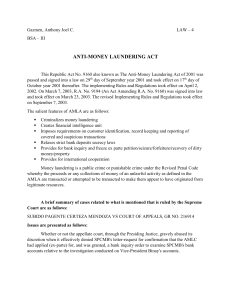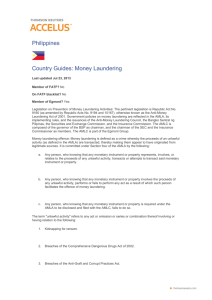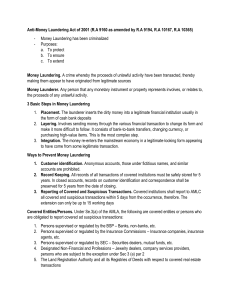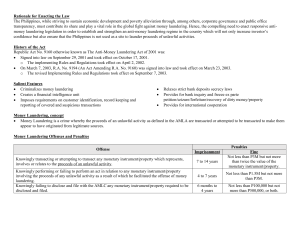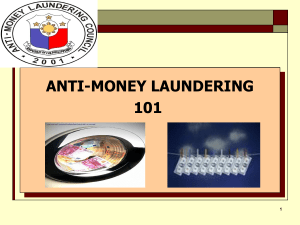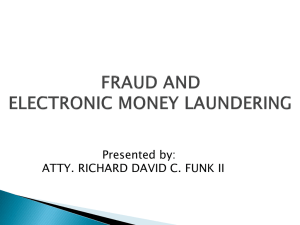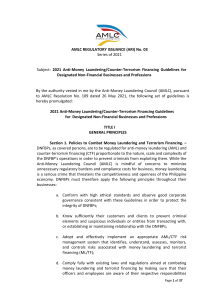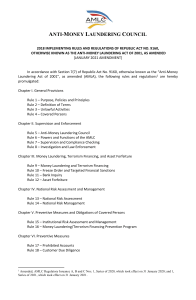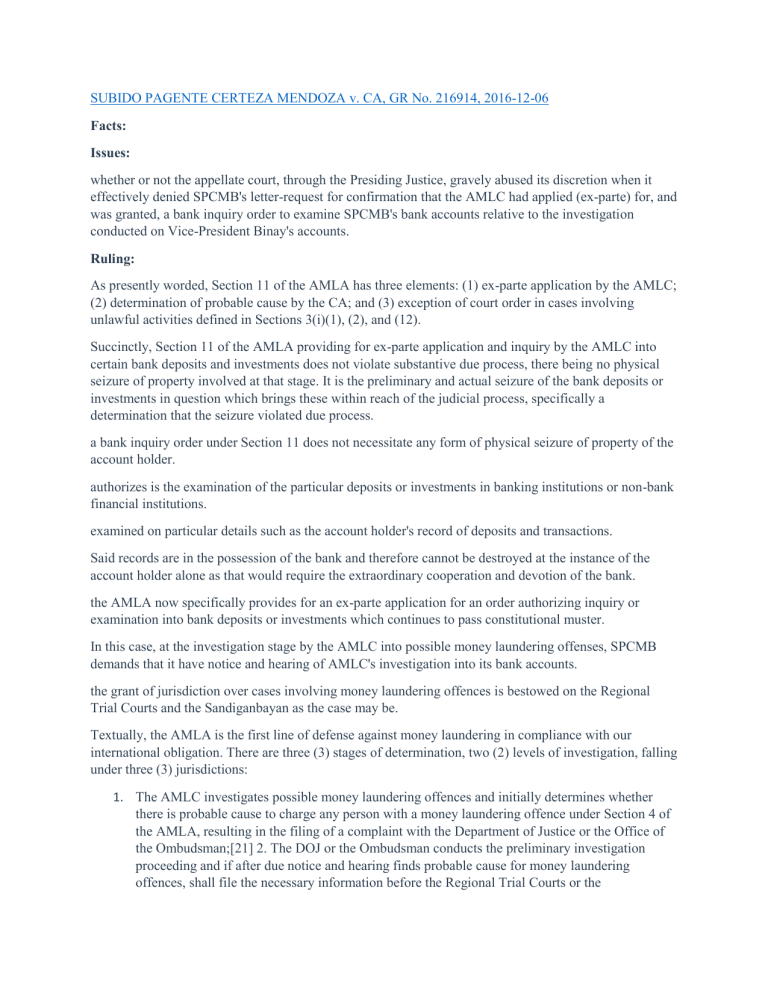
SUBIDO PAGENTE CERTEZA MENDOZA v. CA, GR No. 216914, 2016-12-06 Facts: Issues: whether or not the appellate court, through the Presiding Justice, gravely abused its discretion when it effectively denied SPCMB's letter-request for confirmation that the AMLC had applied (ex-parte) for, and was granted, a bank inquiry order to examine SPCMB's bank accounts relative to the investigation conducted on Vice-President Binay's accounts. Ruling: As presently worded, Section 11 of the AMLA has three elements: (1) ex-parte application by the AMLC; (2) determination of probable cause by the CA; and (3) exception of court order in cases involving unlawful activities defined in Sections 3(i)(1), (2), and (12). Succinctly, Section 11 of the AMLA providing for ex-parte application and inquiry by the AMLC into certain bank deposits and investments does not violate substantive due process, there being no physical seizure of property involved at that stage. It is the preliminary and actual seizure of the bank deposits or investments in question which brings these within reach of the judicial process, specifically a determination that the seizure violated due process. a bank inquiry order under Section 11 does not necessitate any form of physical seizure of property of the account holder. authorizes is the examination of the particular deposits or investments in banking institutions or non-bank financial institutions. examined on particular details such as the account holder's record of deposits and transactions. Said records are in the possession of the bank and therefore cannot be destroyed at the instance of the account holder alone as that would require the extraordinary cooperation and devotion of the bank. the AMLA now specifically provides for an ex-parte application for an order authorizing inquiry or examination into bank deposits or investments which continues to pass constitutional muster. In this case, at the investigation stage by the AMLC into possible money laundering offenses, SPCMB demands that it have notice and hearing of AMLC's investigation into its bank accounts. the grant of jurisdiction over cases involving money laundering offences is bestowed on the Regional Trial Courts and the Sandiganbayan as the case may be. Textually, the AMLA is the first line of defense against money laundering in compliance with our international obligation. There are three (3) stages of determination, two (2) levels of investigation, falling under three (3) jurisdictions: 1. The AMLC investigates possible money laundering offences and initially determines whether there is probable cause to charge any person with a money laundering offence under Section 4 of the AMLA, resulting in the filing of a complaint with the Department of Justice or the Office of the Ombudsman;[21] 2. The DOJ or the Ombudsman conducts the preliminary investigation proceeding and if after due notice and hearing finds probable cause for money laundering offences, shall file the necessary information before the Regional Trial Courts or the Sandiganbayan;[22] 3. The RTCs or the Sandiganbayan shall try all cases on money laundering, as may be applicable. Nowhere from the text of the law nor its Implementing Rules and Regulations can we glean that the AMLC exercises quasi-judicial functions That the AMLC does not exercise quasi-judicial powers and is simply an investigatory body finds support in our ruling in Shu v. Dee. the AMLC functions solely as an investigative body in the instances mentioned in Rule 5.b.[26] Thereafter, the next step is for the AMLC to file a Complaint with either the DOJ or the Ombudsman pursuant to Rule 6.b. Plainly, the AMLC's investigation of money laundering offenses and its determination of possible money laundering offenses, specifically its inquiry into certain bank accounts allowed by court order, does not transform it into an investigative body exercising quasi-judicial powers. Hence, Section 11 of the AMLA, authorizing a bank inquiry court order, cannot be said to violate SPCMB's constitutional right to procedural due process. The warning in Eugenio that an ex-parte proceeding authorizing the government to inspect certain bank accounts or investments without notice to the depositor would have significant implications on the right to privacy still does not preclude such a bank inquiry order to be allowed by specific legislation as an exception to the general rule of absolute confidentiality of bank deposits. Principles:
